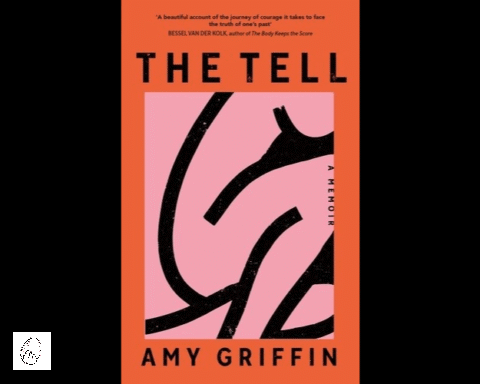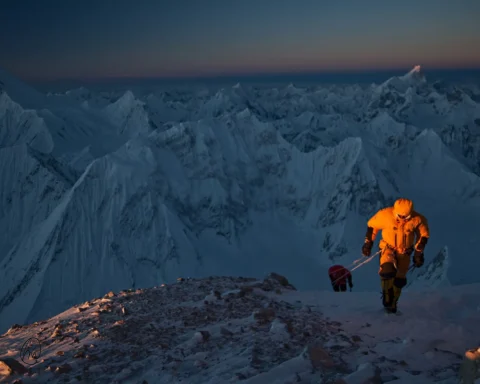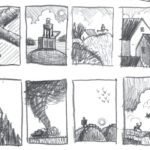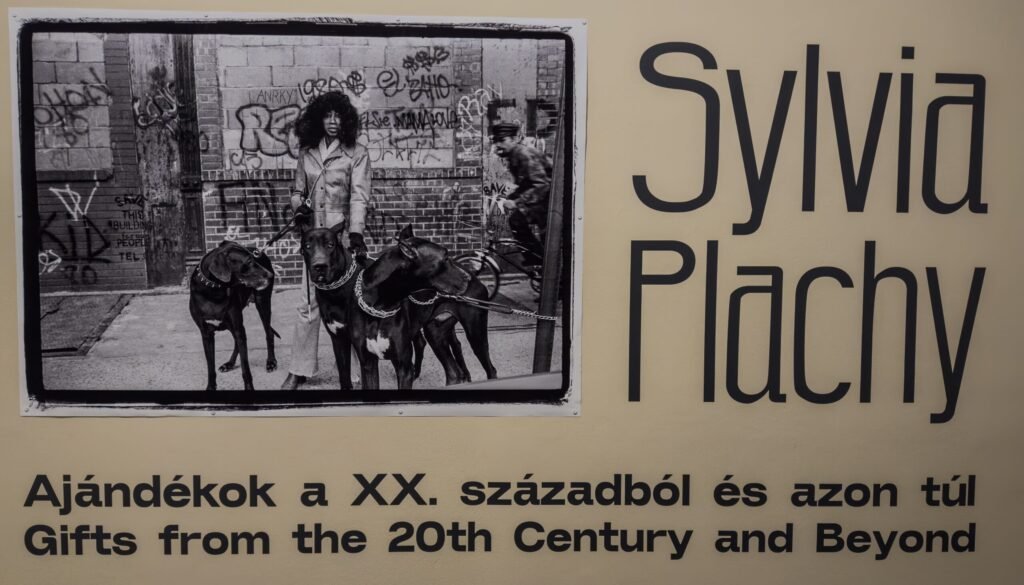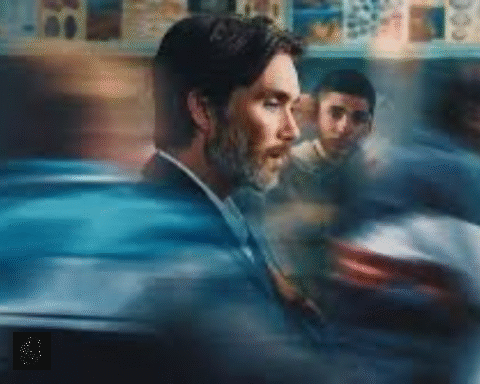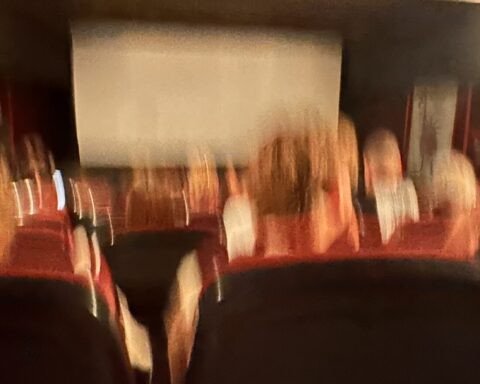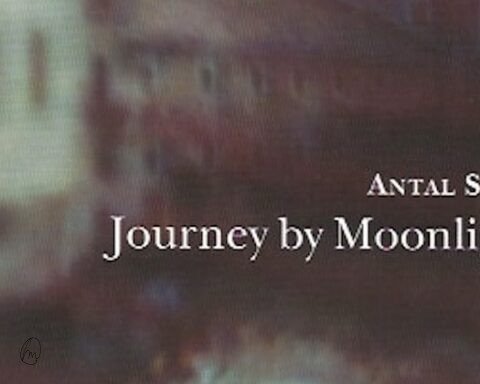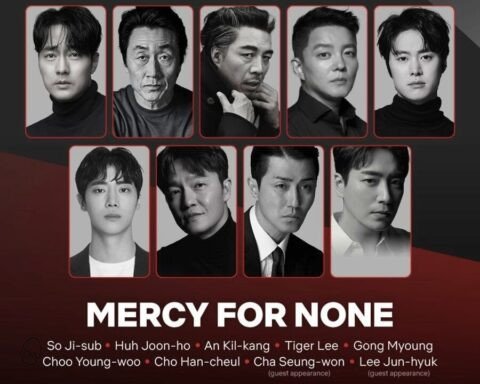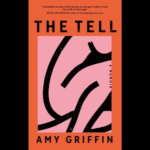Earlier, I had already written about the second volume of Peter Brown’s Wild Robot trilogy, noting that it felt as though the author’s momentum had waned during the storytelling — yet by the end, I was holding a beautifully rounded and complete tale in my hands.
With that experience in mind, I couldn’t help but wonder whether The Wild Robot Protects would bring anything new. I assumed it might revolve once again around Roz’s struggle against other machines trying to drag her back to the factory.
Or, city robots attacking the island again — some kind of predictable repetition. Even a return to the ethical dilemma: when does a metal unit running on artificial intelligence become an individual? And how can law enforcement robots be reliably controlled after Roz, our protagonist, managed to override her own programming while escaping?
Hand on heart — what else could you imagine upon hearing the title The Wild Robot Protects, right?
Well, Peter Brown proves all of that wrong again.

Although he had originally intended to end Roz’s story with the second book — feeling it was complete — he began to notice how the kind-hearted robot kept quietly returning to his thoughts. The reappearing, growing urge led him to study, to observe cause-and-effect principles in nature that would form the foundation for a new story. By the time his years of research came to an end, a new tale had taken shape — a wondrous, timely, and vital fable.
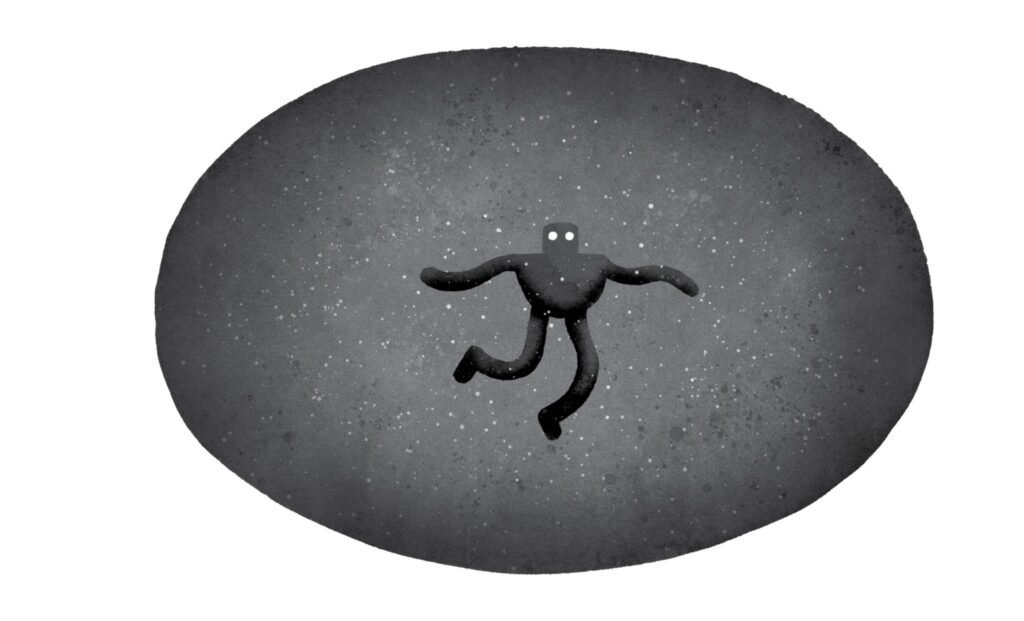
In this volume, Peter Brown introduces us to the ocean’s ecosystem and the fragile causal laws at work within it. Alongside the delicate gentleness of his expressions, we’re confronted with the destructive impact of human activities — the damaging consequences of unchecked industrialization.
He weaves the everyday presence of waste and the environmental degradation caused by our lifestyles into beautiful imagery — reading this book feels like a lovely vacation, swimming in the sea… only for your foot to get caught in a plastic bag.
Bruhh.
At the same time, he conjures the snowy landscapes of the far north with magical precision. Once again, the author takes us on a vivid journey. We learn the secrets of glaciers, which Roz must conquer to stop the chemical poisoning that threatens her home — poisoning caused by deep-sea mining operations beneath the northern lights.

During this rescue expedition, we meet new animal species, painted to life with meticulous detail. A fable, again. Another thrilling and beautiful fable fills these pages. Beyond the natural science lessons, ethics remain front and center.
Throughout the journey, Roz makes it clear to each and every animal she meets that she hopes to end the poisoning through negotiation — not through violence, nor by relying on her physical advantage. Yet she has no way of knowing the secrets that still lie hidden along her path.

This volume marks a turning point in the trilogy’s arc, where — interestingly — our robot must resolve an apparently unsolvable challenge methodically, while no longer being the central force driving the events. But as they say: teamwork makes the dream work.
It is the disillusioned animal kingdom that rises together to fight the mining crew — a crew made up of only a handful of humans; the bulk of the work is done by gigantic robots.
Peter Brown brings a lifelike quality even to the battle scenes, showcasing predator-prey dynamics and self-defense behaviors observed in the animal world. Roz’s presence becomes a source of moral strength for the creatures defending their home.
Human skepticism, disbelief, and blindness take the stage toward the end of the book — yet even these difficult traits are portrayed with remarkable gentleness and understanding.

According to the author, the greatest challenge in writing this book was maintaining a healthy balance while portraying the web of cause and effect. He didn’t want to preach — and he succeeded. He doesn’t lecture.
He achieved his goal: the root of the harm is clear, yet the door to disagreement with that very root is wide open. The path is there. The freedom to choose.
With The Wild Robot Protects, a book written after years of preparation, Peter Brown resolves the darker images with a message of hope — hope for change, for second chances.
He has created a trilogy that speaks to every generation.
I’d like to close this review with a visual piece of mine, one I drew years ago for a board game — and which, I feel, belongs here.

If you’d like to stay up tp date with more interesting reads like this – or just relax with some laid back culture content – feel free to subscribe to the newsletter at the bottom of the page.” If you do, please make sure to check the spam folder too, since the confirmation email might end up there (Heti Mocsok currently set up on the free version of the Mailchimp for budget reasons)
